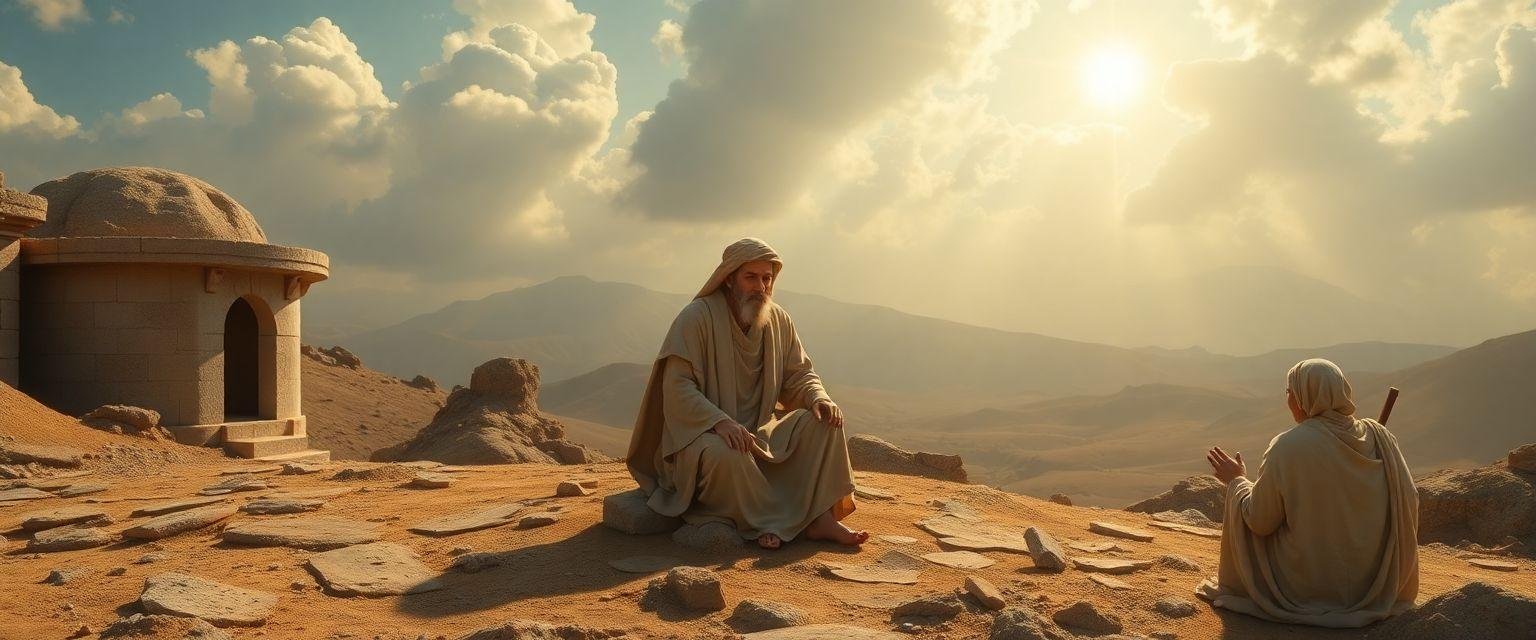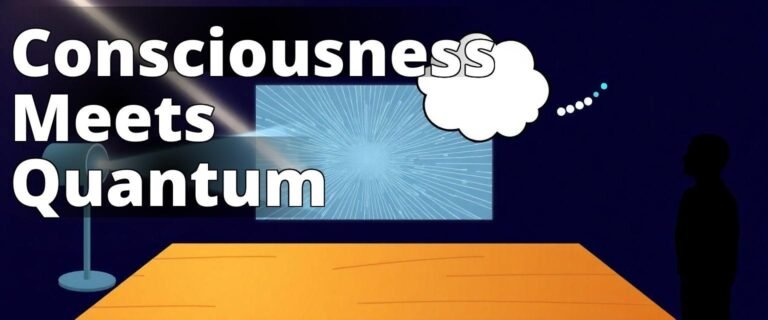Did God Create Man, or Man Create God?
In exploring the intricate dance between divinity and humanity, one might ponder: Did God create man, or did man create God? This age-old question delves into the very essence of belief systems and their profound sway over cultures throughout history. The influence of religion on culture is undeniable, yet it prompts us to question the origins of these beliefs. Are they divinely inspired truths or constructs of human imagination and necessity?
Influence of Religion on Culture
Explore the complex interplay between religion and cultural development.
– Religion has historically shaped moral frameworks, influencing societal norms and ethical behavior.
– Cultural practices, rituals, and art have often stemmed from religious beliefs, reflecting their profound impact on community identity.
– The concept of God has evolved alongside human societies, demonstrating how cultural changes can modify spiritual perceptions and practices.
The Evolution of Religion
Religion, in its myriad forms, has been a cornerstone of human civilization, shaping societies and influencing cultural norms for millennia. From the animistic traditions of early human tribes to the organized monotheistic religions that dominate today, the evolution of religion is as complex as it is fascinating.
Religious evolution is not merely about the transformation of beliefs but also about how these beliefs adapt to the changing landscapes of human societies. For instance, the shift from polytheism to monotheism in ancient cultures like Egypt and later Rome reflects a broader trend towards centralization and unity in belief systems, which often mirrored political unification processes. Insider Tip: As Dr. Karen Armstrong notes, “Religion is not a fixed entity, but a dynamic process that evolves with human understanding and social needs.”
One might argue that religion’s adaptability is its greatest strength. It has allowed faith systems to endure through the ages, transforming and molding themselves to better fit the needs of the people. This adaptability is evident in the way various religions have embraced modern issues, such as environmental stewardship, which reflects a growing global consciousness towards sustainability.

Thought Provoking Question: How has the evolution of religion mirrored societal changes, and in what ways do modern religious movements continue to adapt to contemporary challenges?
The Evolution of Morality
As religion has evolved, so too has the concept of morality. Historically, religious doctrines have been the bedrock of moral frameworks in communities around the world. The Ten Commandments in Christianity or the Five Precepts in Buddhism illustrate how moral tenets are often intertwined with religious teachings.
The emergence of secular morality, however, presents an intriguing question: Can morality exist independently of religion? Studies suggest that moral behavior is not exclusively tied to religious belief. A 2014 study published in the journal Science found that secular communities often exhibit moral behaviors similar to their religious counterparts. This indicates that morality might stem from innate human instincts for empathy and cooperation, rather than solely from divine commandments.

Moreover, the role of religion in moral evolution is evident in historical movements such as the abolition of slavery and the civil rights movement, where religious leaders played pivotal roles. These examples highlight how religious morality can drive societal change, aligning with evolving human rights norms.
Thought Provoking Question: How does the evolution of morality challenge the traditional view that ethical behavior requires religious foundations?
The Evolution of Culture
Religion’s influence on culture is profound, manifesting in art, music, literature, and social customs. Throughout history, religious themes have inspired some of the world’s greatest artistic achievements, from the Sistine Chapel’s ceiling to the intricate calligraphy of Islamic art. These cultural artifacts not only reflect the religious beliefs of their time but also serve as a bridge between the divine and the human.
Cultural evolution often mirrors the shifting paradigms within religions themselves. For instance, the Protestant Reformation not only transformed Christian doctrine but also spurred cultural and intellectual movements like the Enlightenment. This illustrates how religious shifts can catalyze broader cultural changes.

In contemporary society, the interaction between religion and culture continues to evolve. The global spread of ideas facilitated by technology has led to a cross-pollination of religious and cultural practices, creating hybrid traditions that reflect our interconnected world. This cultural evolution challenges the notion of religion as a static, monolithic entity and highlights its dynamic nature.
Thought Provoking Question: In what ways does the blending of cultural and religious practices in a globalized world redefine traditional belief systems?
The Evolution of God
The concept of God, much like religion itself, has evolved over time. From the anthropomorphic deities of ancient mythologies to the abstract, omnipotent God of monotheistic faiths, our understanding of divinity has transformed alongside human knowledge and experience.
This evolution is not only theological but also philosophical. The Enlightenment period, with its emphasis on reason and scientific inquiry, prompted a reevaluation of God’s role in the universe. The deistic view that emerged posited a God who set the universe in motion but remained uninvolved in its daily workings. This shift illustrates how intellectual advancements can influence theological concepts.

Moreover, contemporary interpretations of God often incorporate scientific understandings. Some theologians argue for a God who is compatible with evolutionary theory, suggesting that divine action could operate through natural processes. This reflects a broader trend towards reconciling faith with reason, a dialogue that continues to shape modern religious thought.
Insider Tip: According to theologian John Haught, “The evolution of the concept of God is not a rejection of faith, but an invitation to explore its depths in harmony with scientific understanding.”
The Evolution of You
Understanding the evolution of religion is, in many ways, understanding the evolution of ourselves. As we grapple with the questions of existence, morality, and the divine, we are not just reflecting on religion’s past but also on our own journey as a species.
Religion’s evolution mirrors our quest for meaning and connection, a quest that is deeply personal yet universally shared. As individuals, our beliefs may evolve in response to personal experiences, education, and exposure to diverse perspectives. This personal evolution is a testament to the dynamic nature of faith, which can adapt and grow with us throughout our lives.

In a world where religious affiliation is declining in some regions while flourishing in others, the evolution of religion is a reminder of the diversity and complexity of human belief. It challenges us to consider how our own beliefs fit into this broader tapestry and how they might continue to evolve.
Conclusion
The evolution of religion is not just a historical or cultural phenomenon; it is a reflection of our collective human experience. As we ponder whether God created man or man created God, we are invited to explore the dynamic interplay between faith and culture. This exploration is not about finding definitive answers but about embracing the complexity and diversity of belief systems that continue to shape our world.
For more insights into the intricate relationship between religion and culture, explore our feature documentary on the evolution of religion.
In the end, the evolution of religion, like the evolution of humanity itself, is an ongoing journeya journey that invites us to question, reflect, and grow.
Q & A
Who discusses the influence of religion on culture today?
Scholars, theologians, and cultural critics analyze this topic extensively.
What is the primary influence of religion on culture?
Religion shapes moral values, traditions, and social norms within cultures.
How does religion affect cultural practices and beliefs?
Religion often dictates rituals, festivals, and community interactions in cultures.
Why do some argue that religion shapes cultural identity?
Many believe religion provides a shared narrative and community belonging.
What if I don’t believe in religion; can I still appreciate culture?
Absolutely! Culture can be appreciated through its art, history, and values.
How can understanding this influence help in modern discussions?
It fosters dialogue about ethics, coexistence, and cultural appreciation today.







